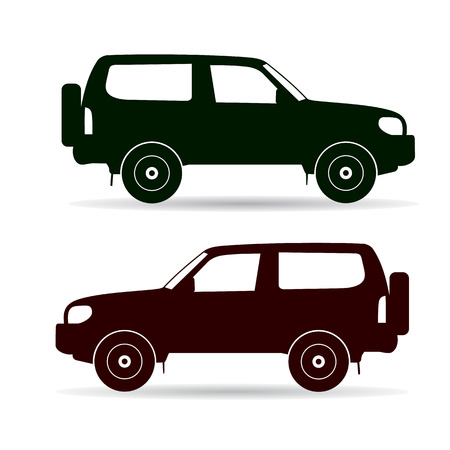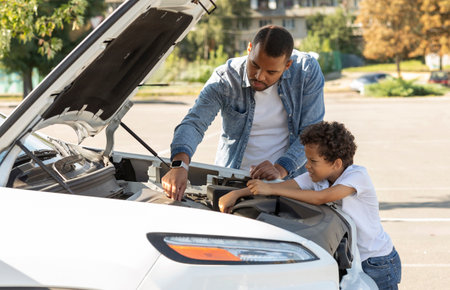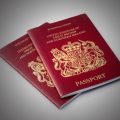Introduction to UK Towing Law Changes
In recent years, the UK has seen a significant rise in the popularity of caravanning, campervanning, and self-drive holidays. This surge in interest is driven by a desire for flexible, socially-distanced travel and the freedom to explore the countryside at one’s own pace. As more drivers take to the roads with trailers, campervans, and caravans in tow, ensuring safety and clarity around towing regulations has become increasingly important. To address evolving travel habits and enhance road safety, the government has introduced several updates to UK towing laws. These changes aim to simplify legal requirements, reduce confusion among motorists, and better accommodate the modern traveller’s lifestyle. Whether you’re planning a weekend escape to the Lake District or an extended road trip along the Cornish coast, understanding these new rules is essential for anyone keen on hitching up and heading out.
Key Updates to Towing Regulations
The recent changes to UK towing laws have brought significant updates for drivers and caravanners, particularly those planning road trips and camping adventures. Here’s a detailed summary of the new rules that came into effect, focusing on towing weights, licence requirements, and permitted vehicle-trailer combinations for standard drivers.
Towing Weights: What’s Allowed Now?
One of the most notable changes is the simplification of towing weight limits for standard car licences (category B). Previously, restrictions varied depending on when you passed your driving test. Under the updated law, if you hold a full UK car licence, you are generally allowed to tow heavier trailers without taking an additional test. However, it’s crucial to pay attention to your car’s manufacturer limits and ensure your combined vehicle and trailer weight does not exceed what your vehicle can safely tow.
| Licence Type | Previous Limit | New Limit |
|---|---|---|
| Category B (car) | Up to 750kg trailer (or up to 3,500kg combined if trailer over 750kg with restrictions) | Up to 3,500kg Maximum Authorised Mass (MAM) total combined weight |
Licence Requirements: Who Can Tow What?
The need for a separate B+E entitlement (the additional qualification for towing larger trailers) has been removed for most drivers. If you passed your driving test after 1 January 1997, you no longer need to take a separate practical test to tow trailers up to the new maximum combined weight limit. This change makes it much easier for aspiring caravanners and self-drive holidaymakers to hit the road without extra hassle.
Summary of Licence Changes:
- If you passed your test before 1 January 1997: You can already tow heavier combinations.
- If you passed after this date: You’re now automatically allowed to tow up to 3,500kg MAM total without needing further testing or endorsements.
Permitted Vehicle and Trailer Combinations
The updated regulations also clarify which combinations of vehicles and trailers are allowed for standard licence holders. For most everyday cars and small campervans, this provides more flexibility in choosing your setup for UK touring or extended camping trips. Always check the Gross Train Weight (GTW) specified by your vehicle manufacturer before setting off—overloading can lead to fines or invalidate your insurance.

3. Impacts on Existing and Prospective Caravanners
The recent updates to the UK towing laws have made a noticeable impact on both seasoned caravanners and those just dipping their toes into the world of camping holidays or self-catering adventures. For many, these changes mean less red tape and a smoother journey towards exploring Britain’s scenic byways, from the Cotswolds’ rolling hills to the rugged landscapes of the Scottish Highlands.
Implications for Current Caravan Owners
If you’re already an avid caravanner, the revised legislation could bring newfound flexibility. Previously, drivers who passed their test after January 1st, 1997 were restricted in what they could tow without taking additional tests. Now, with many of these restrictions eased, you can hitch up your caravan or trailer without as much paperwork or extra training. This makes spontaneous weekend getaways or extended road trips around the UK more accessible than ever before.
What About First-Time Caravanners?
For those considering joining the vibrant British caravan community, these law changes lower the barriers to entry. Without the need for costly and time-consuming towing tests (for most standard setups), it’s easier to hire or buy a tourer and hit the road. However, while legal requirements may have relaxed, it’s still highly advisable to gain some practical experience—perhaps through a local caravan club or hands-on training days—to ensure safe and confident towing.
Key Differences: Before and After Law Changes
| Before Changes | After Changes | |
|---|---|---|
| Test Requirement | Towing test needed for post-1997 licence holders | No extra test required for most combinations |
| Maximum Weight Allowed | Limited by licence category (usually 3,500kg MAM) | Increased allowance (up to 7,500kg MAM for some) |
| Caravan Ownership Process | More complex, especially for younger/newer drivers | Simplified process; easier entry into caravanning |
Considerations for All Adventurers
While these changes open up greater possibilities for freedom on the open road, it’s important to remember that safety remains paramount. Even if you’re now legally allowed to tow larger or heavier units, understanding how different vehicles handle under load—and knowing the ins and outs of proper hitching and weight distribution—is essential. Many experienced British caravanners recommend joining a club like The Camping and Caravanning Club or Caravan and Motorhome Club for practical tips and support as you embark on your journeys. Whether you’re a long-time tourer or dreaming of your first trip to Cornwall’s coastal campsites or Wales’ lush valleys, these new rules invite everyone to explore more of Britain at their own pace.
4. Practical Steps for Drivers
If you’re planning to tow a caravan or trailer across the UK, taking practical steps to ensure you’re road-legal and safe is absolutely vital. The recent changes to UK towing laws mean it’s more important than ever to understand your responsibilities before hitting the open road or pitching up at your favourite campsite.
Check Your Driving Licence
First things first: always check your driving licence to see what categories you are entitled to drive or tow. The rules changed in December 2021, and now most drivers who passed their test after 1st January 1997 can tow heavier combinations without needing to take an extra test. However, it’s still essential to know exactly what your licence permits. Here’s a handy reference:
| Licence Issue Date | What You Can Tow |
|---|---|
| Before 1 Jan 1997 | Car + trailer/caravan up to 8,250kg MAM* (combined) |
| On/after 1 Jan 1997 (before Dec 2021 change) | Car + trailer/caravan up to 3,500kg MAM (combined) |
| After Dec 2021 | Car + trailer/caravan up to 3,500kg MAM (combined) automatically added to licence |
*MAM = Maximum Authorised Mass
Understand Trailer Weights and Limits
The next step is making sure your vehicle and trailer or caravan don’t exceed weight limits. This isn’t just about legality—it’s also key for safe handling on winding B-roads or steep hills in the Lake District. Check both the car’s towing capacity (usually found in your handbook) and the plated weights of your trailer or caravan. Don’t forget that overloading can invalidate your insurance as well as attract fines.
Ensure Your Rig Complies with the Law
- Double-check all lights, indicators, and brakes are working correctly before setting off.
- Your number plate on the trailer must match your towing vehicle and be clearly visible.
- If you’re towing anything over 750kg MAM, it must have its own braking system.
Essential Safety Checks Before You Go
- Inspect tyre condition and pressures—don’t forget the spare!
- Secure all loads inside your caravan or trailer so nothing shifts en route.
- Mirrors: Fit suitable towing mirrors if your caravan or trailer obscures your rear view.
Taking these practical steps will help ensure your next touring adventure—whether it’s a wild camp on the Northumberland coast or a classic weekend away in Cornwall—is both safe and fully compliant with the latest UK regulations.
5. Safety Considerations and Best Practices
With the recent changes to UK towing laws, safety on the road has never been more important for drivers and caravanners. Whether you’re planning a weekend getaway to the Lake District or embarking on a cross-country adventure through the Scottish Highlands, following best practices ensures both your safety and that of fellow road users. Here are some essential tips tailored to the British camping community.
Equipment Checks: The Foundation of Safe Towing
Before setting off, a thorough equipment check is vital. Many seasoned UK caravanners recommend a pre-departure checklist to avoid roadside mishaps. Below is a handy table outlining key items to inspect:
| Item | What to Check | Frequency |
|---|---|---|
| Tyres (Car & Caravan) | Tread depth, pressure, signs of wear or damage | Before every trip |
| Brakes & Lights | Functionality of indicators, brake lights, electrical connections | Every journey |
| Tow Hitch & Coupling | Secure attachment, lock in place, no excessive play | Each hook-up |
| Mirrors & Visibility Aids | Extension mirrors fitted and adjusted correctly | Each trip |
| Breakaway Cable | Correctly attached and not frayed or tangled | Every use |
Loading Advice: Packing Smart for Stability and Control
The way you load your caravan can dramatically affect its handling. UK guidelines recommend placing heavier items low down and as close to the axle as possible for optimal balance. Here are some additional loading tips:
- Avoid overloading: Always stay within your vehicle’s Maximum Authorised Mass (MAM).
- Distribute weight evenly: Prevent swaying by balancing side-to-side loads.
- Securable storage: Use straps or containers to keep items from shifting during transit.
- Noseweight check: Maintain correct noseweight for stable towing—typically around 7% of the loaded caravan weight.
The British Approach: Community-Driven Safety Culture
The British camping community prides itself on fostering a culture of responsibility and support. Caravanners across the UK often share best practices at campsites and online forums such as the Caravan and Motorhome Club. Popular initiatives include local safety workshops, group pre-trip inspections, and sharing of up-to-date law changes. Many sites also provide communal noticeboards with reminders about speed limits, quiet hours, and recycling policies—reinforcing considerate behaviour on-site.
Quick Tips from Fellow Campers:
- Check weather forecasts before departure; UK weather can be unpredictable!
- Curtail speeds when towing; Respect lower speed limits—60 mph on motorways and dual carriageways, 50 mph elsewhere unless otherwise stated.
- Practice reversing in open spaces; Mastering manoeuvres reduces stress at busy sites.
- Lend a hand; Don’t hesitate to ask for advice or offer help—it’s part of the camping spirit!
Together, by prioritising regular checks, smart packing, and supporting each other, UK caravanners can enjoy safer journeys under the new towing laws while embracing all that our scenic countryside has to offer.
6. Resources and Next Steps
Staying up to date with the latest towing regulations is vital for anyone planning a caravanning adventure or road trip across the UK. Fortunately, there are plenty of official resources, training options, and community groups to help you tow safely and confidently under the new laws.
Where to Find Official Advice
The government regularly updates its guidance on towing. Always check the UK Government’s towing advice page before hitting the road. This resource covers licence requirements, weight limits, speed restrictions, and more. You can also find updates from:
Training and Towing Courses
If you’re new to towing or want a confidence boost with the recent law changes, consider enrolling in a recognised course. Many organisations provide hands-on training that covers safety checks, reversing techniques, hitching up, and navigating UK roads. Here’s a quick comparison:
| Provider | Course Focus | Location | Booking Info |
|---|---|---|---|
| The Caravan and Motorhome Club | Towing basics, practical driving, safety checks | Nationwide UK centres | Book Online |
| Towing Solutions Ltd. | B+E test prep, advanced manoeuvres | Cheshire & mobile courses | Book Online |
| IAM RoadSmart | Driver improvement, safe towing skills | Across the UK | Book Online |
Planning Your Next Road Trip or Joining a Club
The updated rules may influence how you plan your journey—especially if you’re venturing into rural areas or national parks. When plotting your route:
- Check caravan site access restrictions and local by-laws via club websites.
- Factor in legal speed limits for your tow combination.
- Use apps like “Out & About Live” for campsite reviews and route planning tools.
- Ensure your insurance policy covers any changes in legal requirements.
Local Caravanning Clubs: Connect and Learn
Joining a club is an excellent way to get support, share tips, and stay current with best practices. Consider these well-known British clubs:
| Club Name | Main Benefits | Website |
|---|---|---|
| The Caravan and Motorhome Club | Site discounts, legal updates, member events | Visit Site |
| The Camping and Caravanning Club | Diverse sites, training workshops, local meets | Visit Site |
| The Freedom Camping Club UK | No annual fees, pet-friendly sites | Visit Site |
Your Next Adventure Awaits!
The recent changes might seem daunting at first glance, but with the right resources and support network, there’s nothing stopping you from hitting the open road. Whether you’re a seasoned caravanner or just starting out, take advantage of official advice, brush up on your skills with a course, and connect with fellow enthusiasts through clubs—so you can explore Britain’s countryside confidently and legally under the new regulations.


